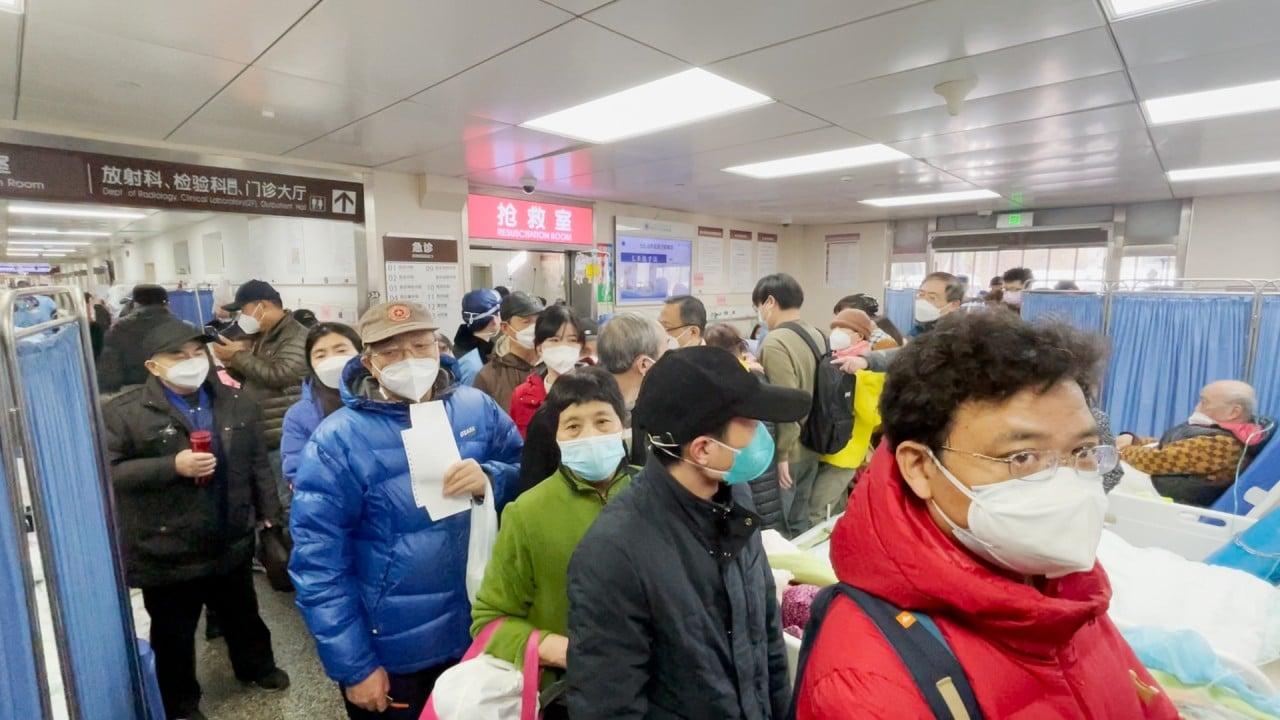
But while Chinese travellers pose little Covid-19 danger to foreign populations, the risk is grave for its rural regions. Unlike the cities that have long reopened, China’s rural areas still have limited exposure to Covid-19. The unvaccinated or undervaccinated in these regions can expect to face higher health risks from an uncontrolled influx of visitors.
Such travel is likely to accelerate the spread of Covid-19 in rural regions, where the medical infrastructure serving an elderly population is more rudimentary and therefore outbreaks may well be more severe. With effective suppression and mitigation measures, hopefully the tragedies witnessed in cities after reopening can still be averted in rural China.
In preparation, the State Council has announced a range of programmes to boost rural medical readiness, including the distribution of medicines and multilevel coordination of medical resources.
These steps, while laudable, are not enough. County hospitals and village clinics remain under-resourced and long-term structural issues cannot be fixed in just weeks. Without the importation and wide distribution of effective Western antivirals, there is simply not enough time to protect the elderly.
The most realistic protection for China’s elderly is a three-dose inoculation of the Chinese vaccines but, as of last month, only 42.4 per cent of those aged 80 or above had received this. While the government has made vaccinating the elderly a priority, it is unclear how fast and how far this can be achieved by Lunar New Year. For the unvaccinated or undervaccinated, it is a race against time.
Experts have suggested that non-pharmaceutical interventions should be restored on a selective and targeted basis to flatten the infection curve. For instance, a new health code may be introduced, not for individuals but for rural counties (preferably down to the village level): a green code where the three-dose senior (above 80) vaccination rate is above 80 per cent, a red code for below 60 per cent, and a yellow code for those in between. Government-mandated restrictions could be imposed in the red and yellow zones to protect the people there until vaccination rates reach green-code levels.
The restrictions may be understood as a kind of lockout rather than a lockdown. Visitors would be restricted (say, subject to negative test results or evidence of recovery from a Covid-19 infection) while free movement would be maintained within the area. Such restrictions will buy valuable time for the local population to acquire adequate protection from full vaccination.
Although an exit from the zero-Covid strategy is inevitable, an orderly and phased path, as has happened in Singapore, would have minimised adverse consequences. While that may have been the plan, a conjunction of circumstances led to an abrupt reopening. After paying the price, China’s urban centres can expect an accelerated return to normality.
But it is not too late to adopt a phased approach for the reopening of rural China. For urban centres, the human costs can be balanced against the economic benefits. For rural regions, however, there is little justification for incurring high human costs when there are limited economic benefits.
With or without mandated travel restrictions, the government should make public the latest vaccination rates for senior citizens in its rural regions (broken down by area). People have a civic duty to refrain from visiting rural areas before the vulnerable populations there have been adequately protected. Beyond voicing dissatisfaction, social media has been a platform for mutual aid – and could be used to call for such collective civic responsibilities.
Many have missed seeing their parents and grandparents in their hometowns and villages. But this Lunar New Year, their greatest expression of love may be in postponing their visits until the protection of their loved ones is more assured.
The central government has rightly prioritised vaccinating the elderly and boosting rural medical resources. But, as these measures are unlikely to be enough to contain imminent outbreaks, regional governments, with Beijing’s support, could buy more time for the vulnerable elderly with a phased and differentiated rural reopening.
Winston Mok, a private investor, was previously a private equity investor

